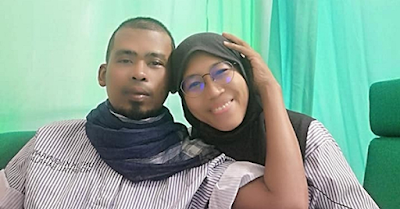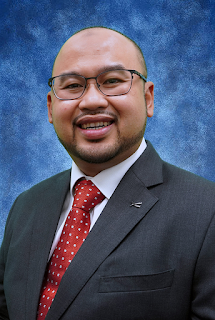 |
Along Eyzendy (Kidney Transplant
Recipient) and |
Going for dialysis constantly and living with kidney disease in life is not easy. Kidney disease has become a serious public health concern for Malaysia in recent years. A study carried out in 2018 showed that the prevalence of CKD in the country is 15.48% − a significant increase from just 9.07% in 2011. There are 5 stages of CKD based on the progression of the disease, with end-stage kidney disease (ESKD) or complete kidney failure in stage 5. Most ESKD patients will have to undergo dialysis, or wait in the hopes of receiving kidney transplant. At present, there is no proven treatment for reversing the effects of serious kidney damage. The National Kidney Foundation of Malaysia (NKF) recently organised a Community Organ Donation Drive (CODE): Life Webinar themed “Living Kidney Transplant”, a bid to raise awareness on the importance of organ donation.
 |
Dr Maisarah
Jalalonmuhali, Consultant Nephrologist and Physician |
 |
Dr Wan Zul Haikal Hafiz,
Medical Lecturer and Clinical Specialist Nephrology |
Dr Wan Zul Haikal Hafiz explained
that kidney transplant is an ideal treatment option to change the lives of ESKD
patients. “We encourage donor transplantation from those whom the
patient has an emotional tie with − not only from immediate family members like
parents and siblings but also their spouse and extended blood relatives. We
want to do the best for the patients and lower the chances of the donated organ
from being rejected.”
Adding on, Dr Maisarah Jalalonmuhali urged for patients who have willing donors, even if they are unrelated to come forward and consult a nephrologist. “Don’t be shy or conclude that the procedure cannot be done. If the nephrologist decides that the unrelated patient and donor can move forward with the procedure, they will be referred to an independent body called ‘Unrelated’ – with interviews conducted to ensure that there is no conflict of interests between the patient and donor. They will then decide if they can proceed with the transplant procedure.”
ESKD patients have to contend with long waiting times for their transplants as deceased organ donation rates in Malaysia currently stands at just 0.86 donors per million inhabitants. Compared to receiving kidney transplants from deceased donors, those from living donors offer better outcomes and long-term survival for patients. Thus living kidnay transplant is a very good viable opinion.
Webinar attendees were also moved by the heart-warming sharing session with kidney transplant recipients as well as the inspiring stories of their generous donors. Sharing their struggles of living with ESKD, donor recipients highlighted the many ways their lives improved after a kidney transplant; from being able to enjoy an active lifestyle to being free from constant dialysis treatments.
One kidney transplant recipient and his donor that were featured during the sharing session was Malaysian actor Mohd Eyzendy Aziz or famously known as Along Eyzendy, an ESKD patient and his wife, Hamidah Mohd Yatim – an ‘angel without wings’ that provided him a second chance at life. After undergoing surgery recently, both Along Eyzendy and Hamidah are grateful they got the opportunity for the life-saving procedure. This is a bond that will tie these two pairs of lovebirds together forever!
While a transplant is not a cure for kidney failure, transplant recipients will have a significantly longer and better quality of life. Members of the public who are interested in contributing towards this cause of helping patients with kidney failure can find out more through NKF’s website at nkf.org.my/ or call 03-7954 9048.





1 Comments
Costs and travel related to job placement. If you are a healthcare professional who is trying to land a job with a healthcare facility that is out of town, or you are a traveling nurse - you can benefit substantially by signing on with a healthcare staffing agency. marco's pizza diabetic friendly
ReplyDelete